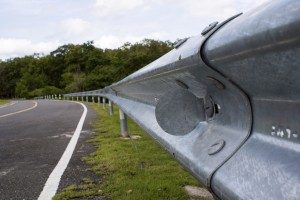Guardrail Manufacturer Fails to Disclose Product Dangers
A Texas jury found a guardrail manufacturer, Trinity Industries,  guilty of failing to disclose changes to the guardrail head. The difference was only an inch (4 inches instead of 5 inches), but what was once a safety mechanism, was now putting drivers and passengers at potential risk across the country. The Texas jury heard that the changes were a cost-savings measure and ultimately awarded a $175 million dollar verdict for defrauding the government.
guilty of failing to disclose changes to the guardrail head. The difference was only an inch (4 inches instead of 5 inches), but what was once a safety mechanism, was now putting drivers and passengers at potential risk across the country. The Texas jury heard that the changes were a cost-savings measure and ultimately awarded a $175 million dollar verdict for defrauding the government.
Guardrails are supposed to prevent people from going too far off the road and to prevent serious injuries. The guardrail was supposed to peel away from a vehicle when hit head on. The changes in design caused the rail to jam and flair out. Testimony from crash victims said instead of protecting them, the guardrail pierced into their cars like a spear.
WXYZ Detroit reported that “according to a recent study, the ET-Plus guardrail end terminal, manufactured by Trinity Industries, is 1.36 times more likely to produce a severe injury and 2.86 times more likely to produce death than an older model manufactured by Trinity, the ET-2000.”
Public Justice who is representing two safety organizations – The Center for Auto Safety and The Safety Institute – is in a bid to bring details about Trinity’s products into the light. Public Justice wants to show that Trinity is trying to keep information about the safety of its products out of the public eye by getting the courts to unseal records in a federal whistleblower lawsuit that may contain important information about the hazards of the ET-Plus.
Locally, Contact 5 Investigation began its own investigation in November 2013, and has since uncovered that Trinity failed to tell the Federal Highway Administration and the Florida Department of Transportation that a one inch change had been made to the guardrail’s feeder chute.
WJCT News reported that it received an e-mail from Florida Department of Transportation spokesman Dick Kane saying, “the state is monitoring the situation for further information and ‘will take appropriate action when necessary.’”
Trinity has stopped selling the contested model until future testing could be complete.


